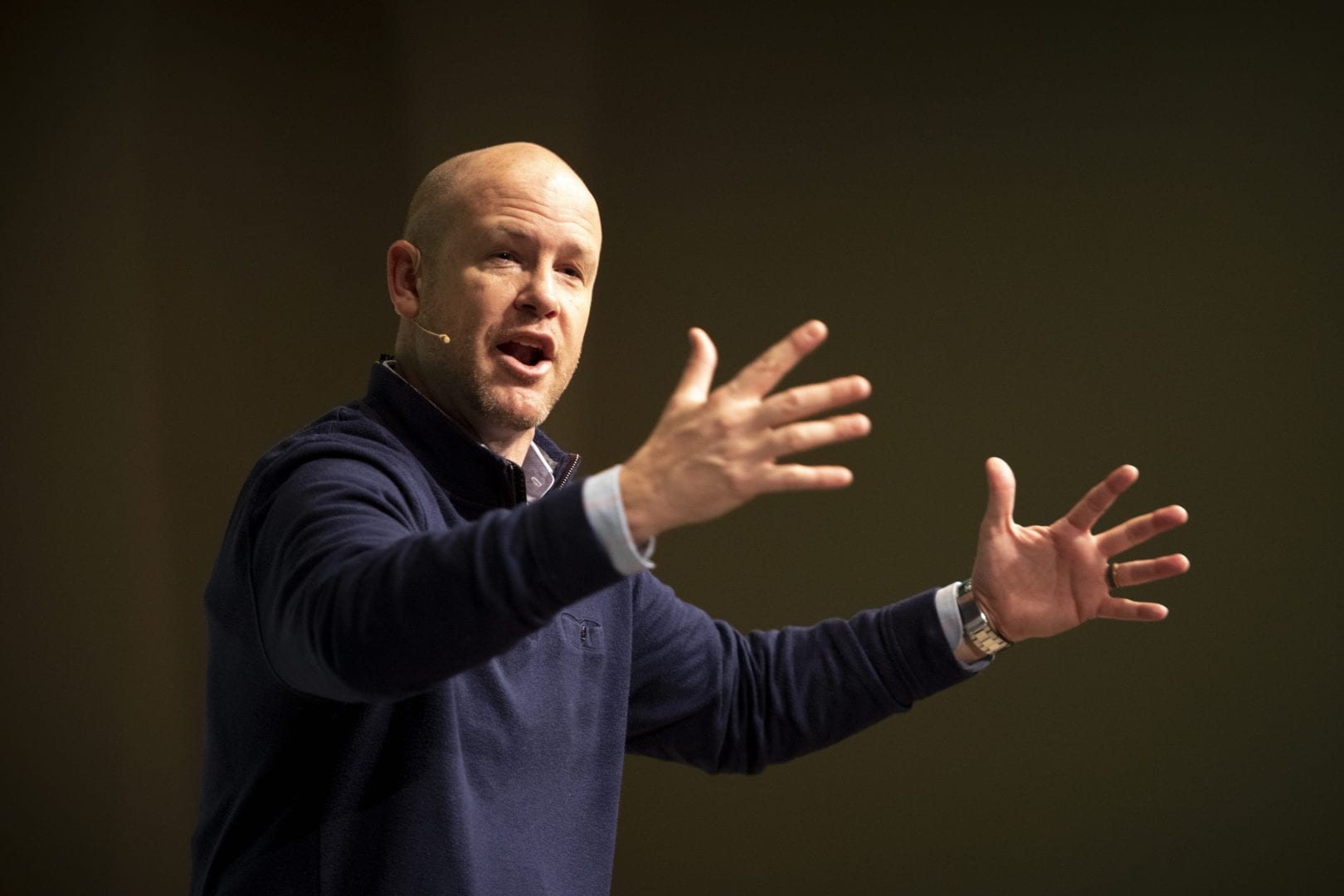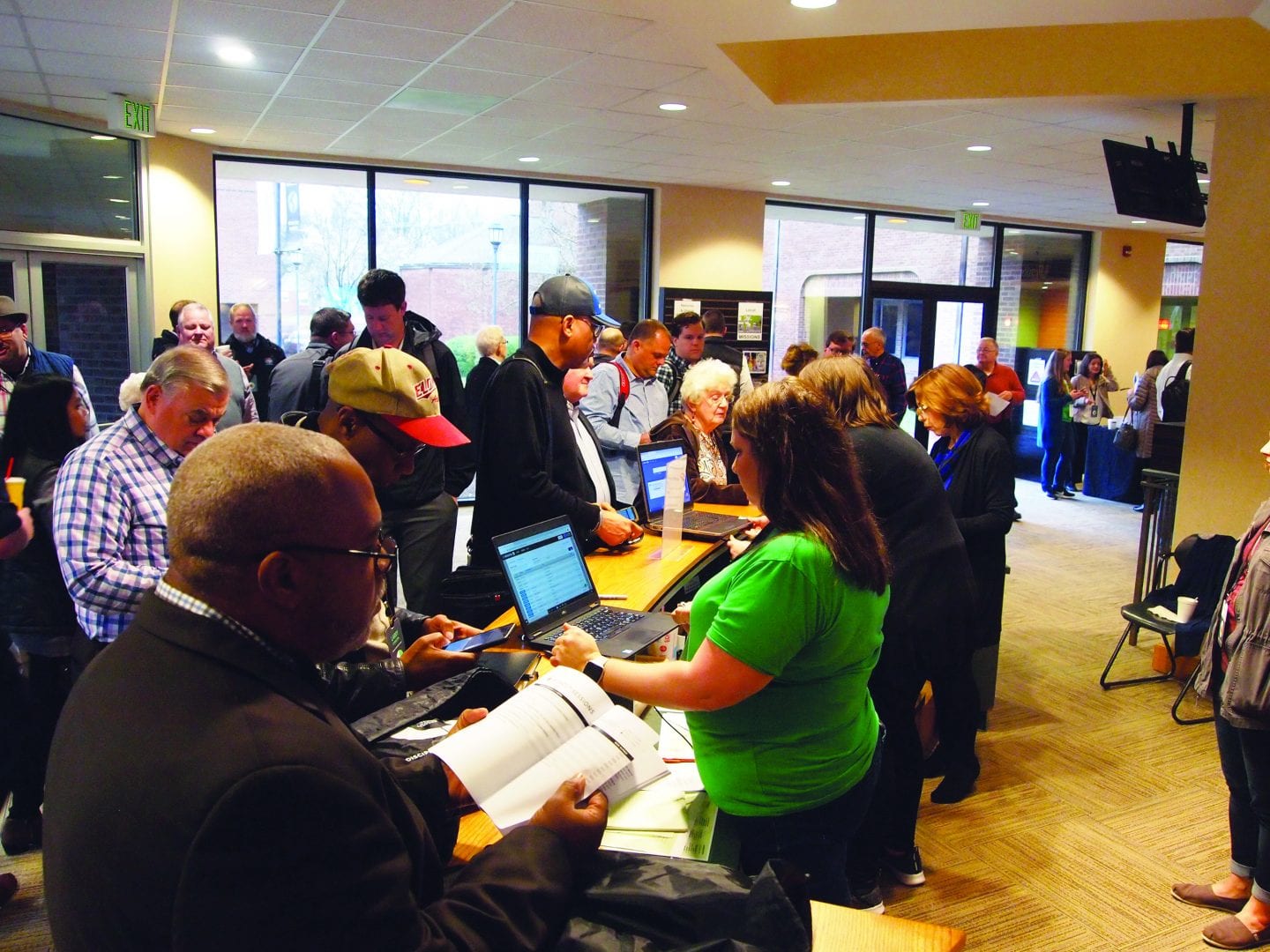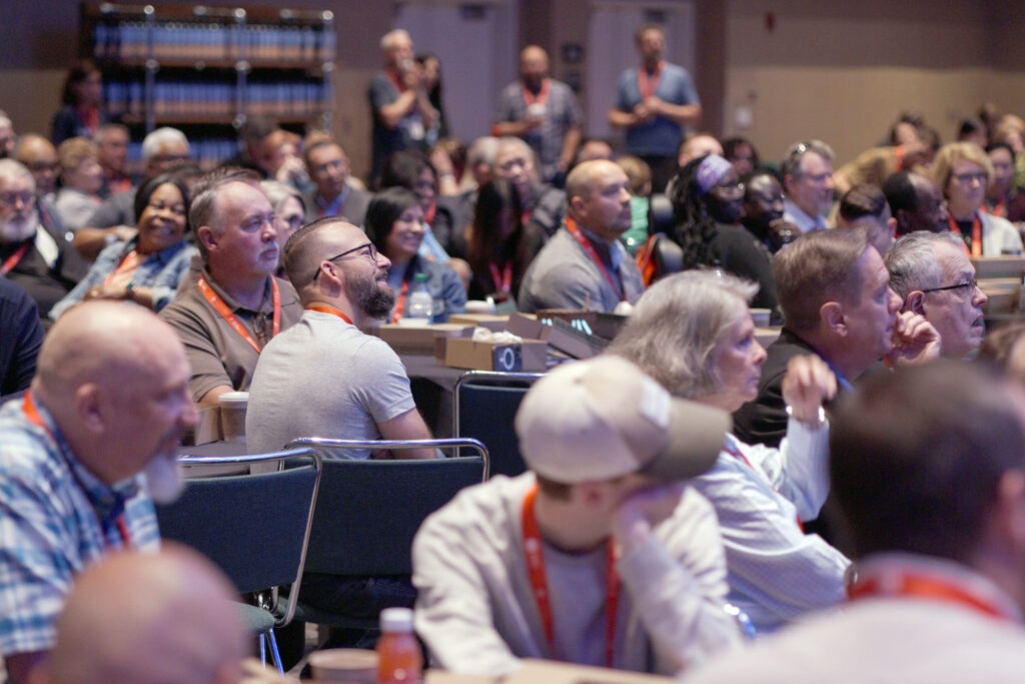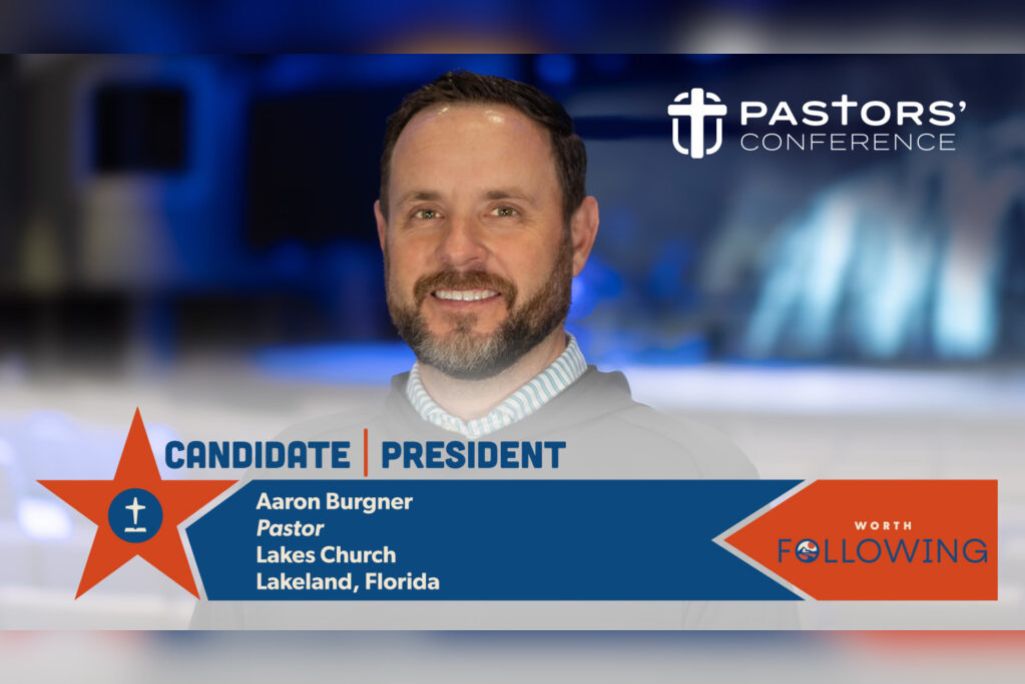
BSC photo by K Brown
“It would be easy to read the book of Nehemiah and consider (him) the hero of the story,” said Jimmy Scroggins. “The hero of every story in the Bible is Jesus. The hero of your church can’t be you.
“The hero of my church can’t be me. You and I are put here to point people to Jesus.”
Scroggins, who describes himself as “a pastor of a local church” despite his church’s size and multi-site structure, served as the main speaker for the Feb. 25 Disciple-Making Conference at Green Street Baptist Church in High Point, N.C., with 736 registered participants.
He and his wife have eight children and serve at Family Church in West Palm Beach, Fla., where Scroggins is lead pastor.
Scroggins shared out of Nehemiah and John during two main sessions.
“I’m just a beggar trying to share with the other beggars where we can find some bread,” he said.
In 2008, God called the Scroggins family to Florida to First Baptist Church, a church Scroggins described as “messed up” – attendance, facilities, debt, scandals and scoundrels.
Even though the church looked like a “wedding cake” and had many “really great people,” it had become stagnant and started to decline.
The first event he and his wife hosted was for eight couples on marriage. But, Scroggins was bringing his foundation of Jesus with him. The problem was the couples who signed up had no gospel foundation.
The contact with broken people stirred Scroggins to rethink how he approached people, for marriage events and otherwise.
“God needed me to start thinking what it would be like to be somebody different from me,” Scroggins said.

Out of his questioning came his “3 Circles” approach to sharing the gospel, where you explain brokenness.
“I have learned that God has a design for marriage, relationships, sex, parenting, money, communication, forgiveness, releasing bitterness; God has a design for all of this, and it’s found in the Bible.”
The way to find God’s design for these things involves studying His Word. “But the problem is all of us want to go our own way because we think we can get more satisfaction, have more fun, get there faster … it will be better if we do it our own way,” Scroggins said.
That brokenness inspires us to change, he said, “but we don’t know how to change it.”
What the couples needed was someone to show them the Good News, the debt that Jesus paid for all sinners, and the repentance from sin and acceptance of God as Savior required on the part of the believer.
These people, their lives were so far from God’s design, and the brokenness was so big, that the gospel cleans them up, but their journey to recover God’s design was still going to be very difficult.
Because even when someone becomes a Christian and Jesus comes into their life, God doesn’t erase their past.
When Jesus was talking with the woman caught in adultery, He had been speaking with authority from the scriptures.
“Jesus was known for spending time with sinners,” Scroggins said. “The Pharisees had no right to condemn anyone, because they were sinners just like her. The Pharisees had no right to push anyone down or push anyone out, because they were sinners.”
Jesus knew that in a matter of months, He would be condemned in her place.
“He would make her sins His responsibility,” Scroggins said. “He’s not glossing over sin. He’s taking sin more seriously than any of us do.”
Scroggins encouraged the crowd to mess their church up by inviting broken people.
“Let the Holy Spirit disciple people along His timeline,” Scroggins said.
Like Nehemiah, church leaders face many challenges, he said.
“Even if you desire to do it, it doesn’t make it easier, does it?” he asked. “We need to be in prayer like Nehemiah was … that God would strengthen our hand to do it. Our job is to lead them forward to the future that God has. But the leader has to see it and name it and develop a path toward something better.”
Leaders need to do five things:
• See what other people won’t see. Nehemiah saw the wall as an embarrassment, Scroggins said. When facilities are broken down, it’s a blight on the reputation of God’s people which becomes a blight on God.
“But Nehemiah could see a future,” he said. “The future is the issue. Lots of people know the problems in your church. We know all the problems. The question is: where are we going?”
• You have to feel what other people won’t feel. “Then you’ve got to carry it,” Scroggins said. “We’ve got to eradicate any sinful sense of superiority.”
• You have to believe what other people won’t believe. Nehemiah believed God wasn’t finished with his city,” he said. “Your church is sitting on acres of diamonds … see it for what it really is. Nehemiah believed he was doing a great work.”
• You have to take what other people won’t take. “He had to handle squabbling among his volunteers, government intervention,” Scroggins said.
• You have to finish what other people won’t finish. “We can’t quit on our marriages,” he said. “We can’t quit on our kids. We can’t quit on our church. We can’t quit on God. We have to finish.”
“I appreciate Dr. Scroggins’ focus on Nehemiah 6:3, ‘I am doing a great work, and I cannot come down,’ said Jonathan Blaylock, pastor of North Albemarle Baptist Church. “It was an encouraging word to any pastor to stay on the wall and do the great work of making disciples in the local church.”
Blaylock also praised Danny Franks’ breakout session “The Sermon Starts in the Parking Lot” as “very helpful.”
Wesley Smith, associational missionary for the Greater Cleveland County Baptist Association in Shelby, said disciple-making is about a lifestyle.
“The 2020 Disciple-Making Conference was great,” he said. “I love how applicable everything is. There’s something for all churches, large and small, metropolitan, rural, or town and country. The strategies and information can be implemented immediately. It’s not a ‘program.’”
Smith said that while it was his first time attending the conference, it will not be his last. He plans to recruit more to come next year.
Will Stoneham, pastor of Mint Hill Baptist Church in Charlotte, brought six people to the conference, especially to attend a variety of breakout sessions.
“This is the second year I have attended the conference, and I’ve found it to be a can’t miss event,” he said to the Biblical Recorder. “It’s a great way to learn new skills and sharpen strategies on how to make disciples in our churches, but it’s also a real encouragement to me as a pastor.”
Stoneham said pastors are often considered the only disciple-maker in the church. “The pressure to reproduce others can be immense,” he said. “But we need help to encourage multiplication in others. God will be faithful to honor that prayer and elevate leaders to share that mission!”
David Blackburn, director of missions of Ashe Baptist Association, really liked Steven Wade’s breakout “Developing a Discipleship Pathway.”
“He has a program that works in the church he attends,” Blackburn said. “He uses five practical steps (know the destination, gather the right gear, check your direction often, map out the course and correct course when needed), and he is very knowledgeable.”
The event is yearly and sponsored by the Baptist State Convention of North Carolina. Visit disciplemakingnc.org.


